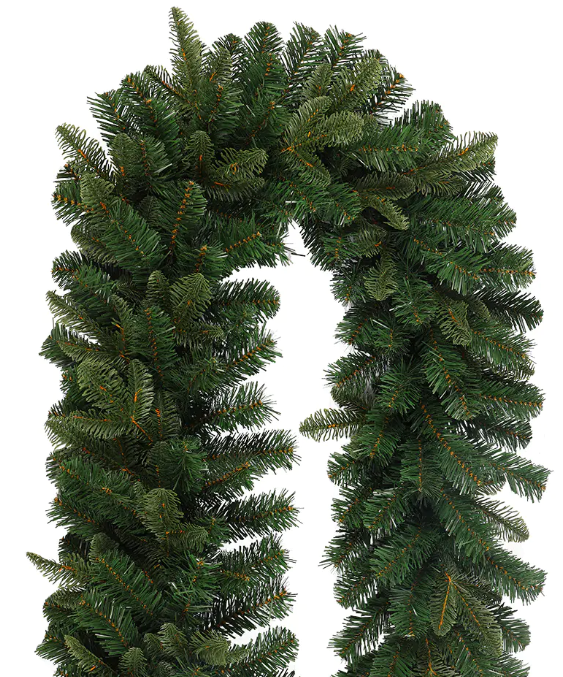Effective Techniques for Securing Christmas Garland Outdoors to Prevent Wind Damage and Falling

Decorating with Christmas garlands is a time-honored tradition that brings warmth and festive cheer to homes and public spaces during the holiday season. However, when used outdoors, these decorative pieces face the challenge of staying securely in place amid wind, rain, and other environmental factors. Ensuring that a Christmas garland remains firmly fixed is essential to avoid damage, maintain aesthetic appeal, and prevent safety hazards caused by falling decorations.
The first step in securing a Christmas garland is choosing the right fastening method based on the surface and location where the garland will be installed. Surfaces such as wooden railings, fences, or brick walls offer different opportunities for attachment compared to smooth metal or glass surfaces. Using weather-resistant materials like heavy-duty zip ties, floral wire, or coated hooks can provide strong and reliable holds without damaging the garland or the structure itself. These materials should be corrosion-resistant to withstand outdoor moisture and temperature variations, ensuring long-lasting security throughout the holiday season.
In addition to choosing appropriate fastening materials, the technique of attachment plays a vital role in maintaining stability. Wrapping the securing wire or ties around sturdy portions of the garland, such as thicker branches or wire frames, distributes tension evenly and minimizes the risk of breakage. Anchoring at multiple points along the length of the garland rather than just at the ends also helps prevent sagging and reduces the chance of the garland being dislodged by gusts of wind.
For locations exposed to strong winds, additional reinforcement may be necessary. This can include using heavy-duty hooks anchored deeply into the structure or employing additional support brackets to bear the weight and stress of movement. In some cases, attaching weights to the base of a garland can prevent it from swaying excessively. When decorating poles or columns, wrapping the garland securely around the surface with tensioned wire ensures that it remains snug and less likely to loosen over time.
It is also important to consider the weight of the Christmas garland and any additional decorative elements such as lights, ornaments, or ribbons. Heavier garlands require more robust securing methods, while lighter ones may be adequately held with simpler fasteners. Distributing the weight evenly and avoiding concentrated loads on weak points will help prevent premature failure of the attachment.
Careful planning before installation can significantly improve the garland’s resilience. Testing the firmness of fastenings by gently pulling on the garland after securing it helps identify weak points or areas needing reinforcement. Choosing installation times during calm weather conditions reduces the risk of wind interference during the setup process.
Maintaining the secured garland throughout the holiday season involves periodic inspections. Harsh weather can loosen ties or damage securing points, so checking and adjusting attachments as needed prolongs the garland’s lifespan and keeps it safely in place.
In conclusion, preventing a Christmas garland from falling or being blown away requires a combination of proper materials, strategic attachment techniques, and ongoing maintenance. By selecting corrosion-resistant fasteners, anchoring the garland securely at multiple points, and accounting for weight and weather exposure, decorators can ensure their festive displays remain beautiful and intact throughout the holiday period. This attention to detail not only preserves the aesthetic appeal but also contributes to the safety and enjoyment of the festive environment.
- Art
- Causes
- Crafts
- Dance
- Drinks
- Film
- Fitness
- Food
- الألعاب
- Gardening
- Health
- الرئيسية
- Literature
- Music
- Networking
- أخرى
- Party
- Religion
- Shopping
- Sports
- Theater
- Wellness


